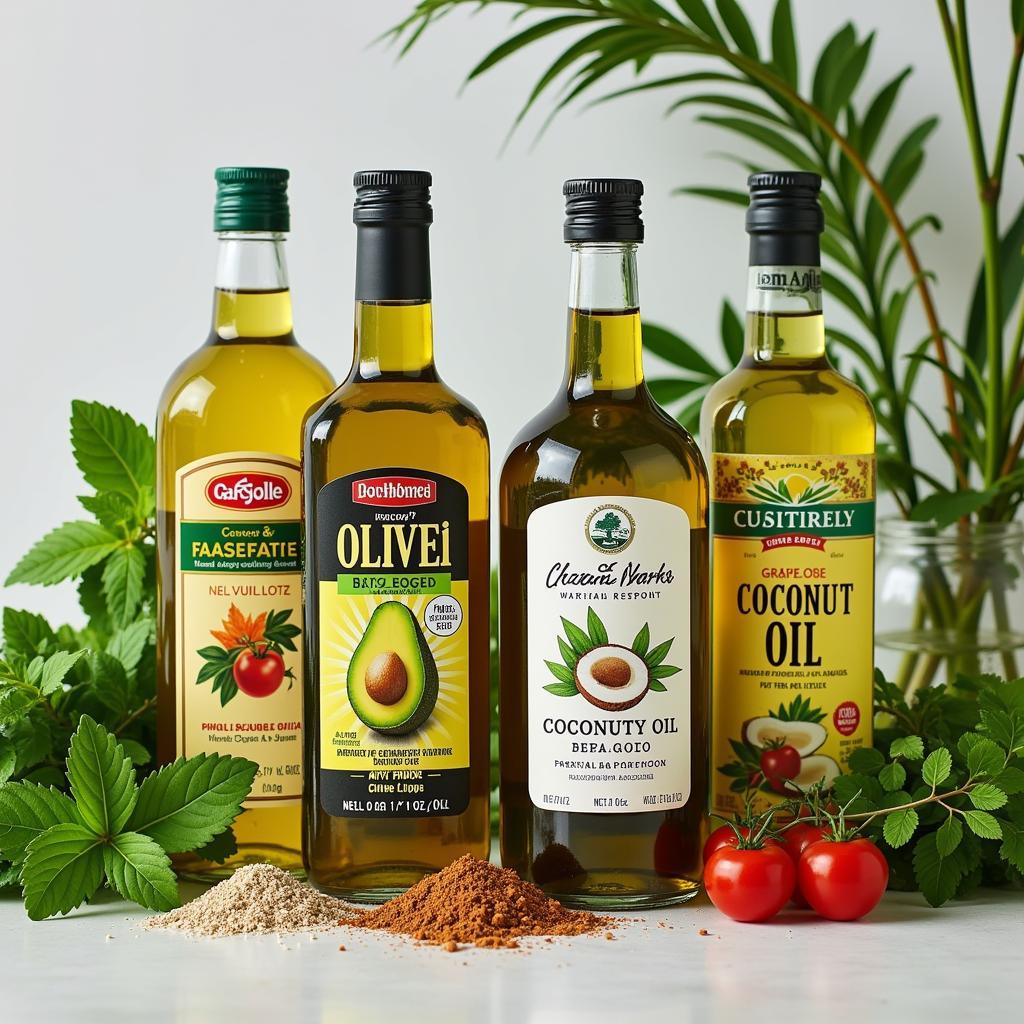Exploring the Rich Traditions of African American Cooking Oil
African American cooking oil is more than just a culinary staple; it’s a testament to a rich history of resourcefulness, tradition, and flavor. From the forced migration across the Atlantic to the ingenuity born out of limited access to ingredients, African American cuisine has always found ways to transform simple ingredients into flavorful masterpieces. And at the heart of this culinary magic often lies the choice of cooking oil.
The Significance of Oil in African American Cuisine
The role of cooking oil in African American foodways extends far beyond its functional purpose. It’s a key ingredient that carries the weight of history and cultural significance. For generations, African Americans, often limited in their access to a variety of ingredients, mastered the art of making the most of what they had.
This resourcefulness led to the innovative use of readily available fats and oils, shaping the flavors and textures that are now synonymous with soul food and other African American culinary traditions. Whether it’s the crispy golden crust on a piece of fried chicken or the rich, savory base of a pot of collard greens, the right cooking oil elevates simple dishes to new heights.
Common Oils Used in African American Cooking
While the specific types of oils used in African American kitchens have evolved over time, certain favorites remain deeply rooted in tradition:
- Lard: Rendered pig fat, or lard, holds a prominent place in the history of African American cooking. Its high smoke point and ability to impart rich flavor made it ideal for frying, baking, and adding depth to stews and vegetables.
- Bacon Fat: Just like lard, bacon fat was a readily available and flavorful option. It imparts a smoky, savory flavor that complements many traditional dishes.
- Peanut Oil: Known for its neutral flavor and high smoke point, peanut oil became a popular choice for frying, as it could withstand high temperatures without burning.
 Modern Choices for Healthier Cooking
Modern Choices for Healthier Cooking
Evolving Tastes and Healthier Choices
As with any culinary tradition, African American cooking is not static. Modern cooks often embrace a wider range of oils, incorporating healthier options like:
- Olive Oil: Prized for its health benefits and versatility, olive oil is finding its way into more African American kitchens, especially for lighter cooking methods like sautéing and salad dressings.
- Avocado Oil: Another heart-healthy option with a high smoke point, avocado oil works well for a variety of cooking needs.
- Coconut Oil: While more common in some regions than others, coconut oil is gaining popularity for its unique flavor profile and its use in both sweet and savory dishes.
Beyond the Basics: The Art of Flavor Infusion
The use of cooking oil in African American cuisine goes beyond simply providing a cooking medium. It’s often an integral part of the flavor profile. One common technique involves infusing oils with herbs, spices, or even smoked meats.
This practice adds another layer of complexity and depth to dishes. For example, a simple pot of black-eyed peas can be elevated by using oil that has been infused with smoked ham hocks or a blend of warm spices.
“My grandmother always said that the oil is the soul of the food,” says Chef Aaliyah Jackson, a renowned culinary historian specializing in African American foodways. “It’s not just about what you cook in it, but what you put into it that makes all the difference.”
Preserving Traditions, Embracing Evolution
The story of African American cooking oil is a testament to the adaptability and creativity of a culture that has continuously found ways to make the most of available resources. While the use of certain oils might evolve with time and access to ingredients, the essence of these culinary traditions remains deeply rooted in history, resourcefulness, and an unwavering commitment to flavor.


